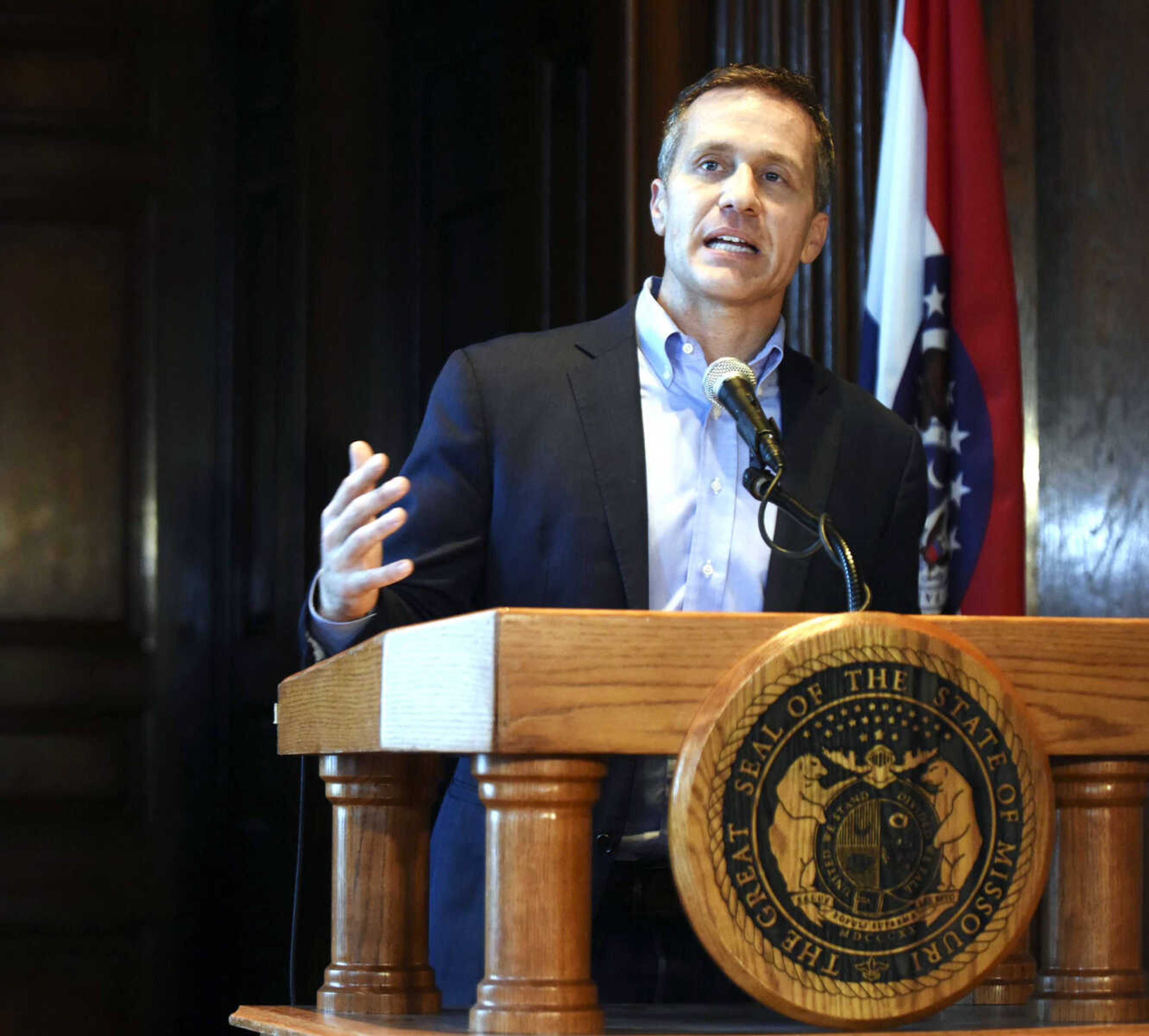Missouri lawmakers consider withholding bills from Greitens
JEFFERSON CITY, Mo. -- Missouri's Senate leaders are considering holding off on sending bills to Gov. Eric Greitens amid multiple investigations into the governor's personal and professional life. Republican Senate President Pro Tem Ron Richard said at a news conference Thursday he will talk with Democratic Minority Floor Leader Gina Walsh about potentially holding onto bills that had passed both chambers of the Legislature until the technical end of the session, which is May 30. ...
JEFFERSON CITY, Mo. -- Missouri's Senate leaders are considering holding off on sending bills to Gov. Eric Greitens amid multiple investigations into the governor's personal and professional life.
Republican Senate President Pro Tem Ron Richard said at a news conference Thursday he will talk with Democratic Minority Floor Leader Gina Walsh about potentially holding onto bills that had passed both chambers of the Legislature until the technical end of the session, which is May 30. Lawmakers adjourn May 18.
Richard and Walsh have not met or made a final decision.
Greitens faces trouble on several fronts. A criminal trial next month will address allegations he took a photo of a partially nude woman without her permission and in such a way that the image could be transmitted to a computer. The alleged photo stemmed from an extramarital affair in 2015 before Greitens took office. A House report released last week included allegations Greitens was physically aggressive during an unwanted sexual encounter with the woman.
In addition, St. Louis Circuit Attorney Kim Gardner on Friday added charges Greitens tampered with computer data over allegations he took a donor list from a charity he founded without the charity's permission, and used the list for political purposes during his campaign for governor. A complaint related to that charge is set to be investigated by the Missouri Ethics Commission.
Walsh, Richard and a host of other lawmakers from both parties have called on the governor to resign, but he's said he'll stay in office. Greitens also has repeatedly denied any criminal activity, and said the House report was part of a "witch hunt" against him.
Republican leaders are collecting signatures to call a special legislative session that could result in Greitens' impeachment.
"We know that Eric Greitens likes to threaten people," Walsh said Thursday, "so it's not out of the realm of possibility that he would leverage his signature or veto over lawmakers considering his impeachment."
After bills pass both chambers, legislative leaders have to sign them before they can be sent to the governor's desk to become law. Their signatures are normally a formality.
Bills that could be affected include a host of measures intended to make Missouri courts more business-friendly. Several bills would increase penalties for people on welfare who misspent benefit money, or who did not comply with expanded work requirements. Several bills aim to help people addicted to opioids, while others would change the state's foster care system.
Connect with the Southeast Missourian Newsroom:
For corrections to this story or other insights for the editor, click here. To submit a letter to the editor, click here. To learn about the Southeast Missourian’s AI Policy, click here.









